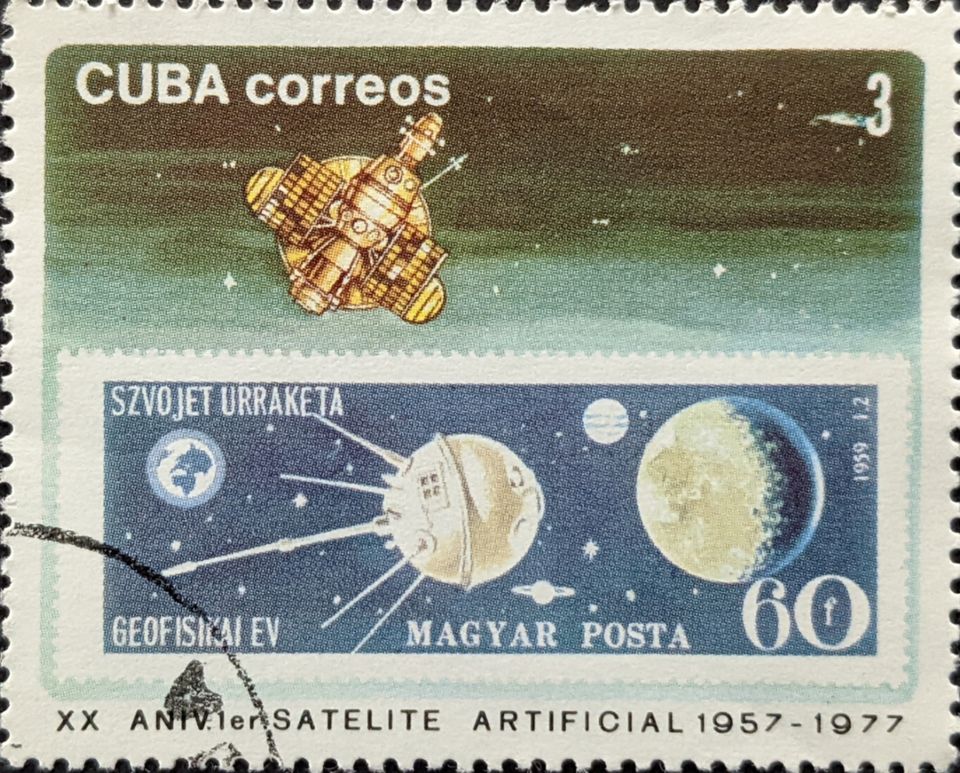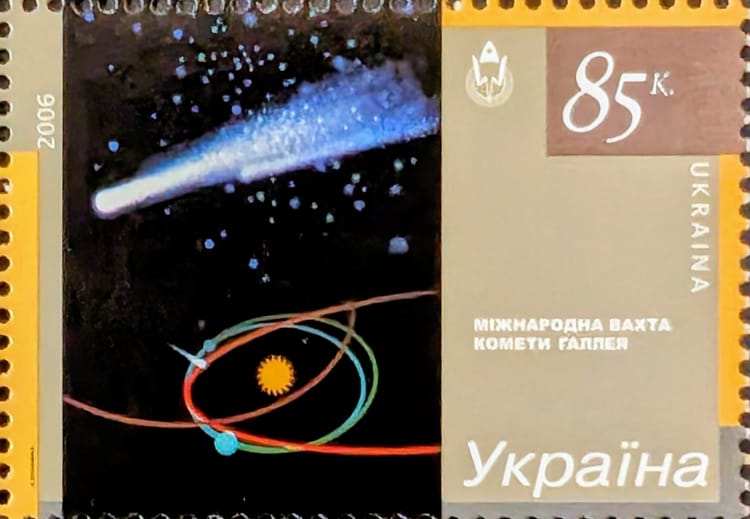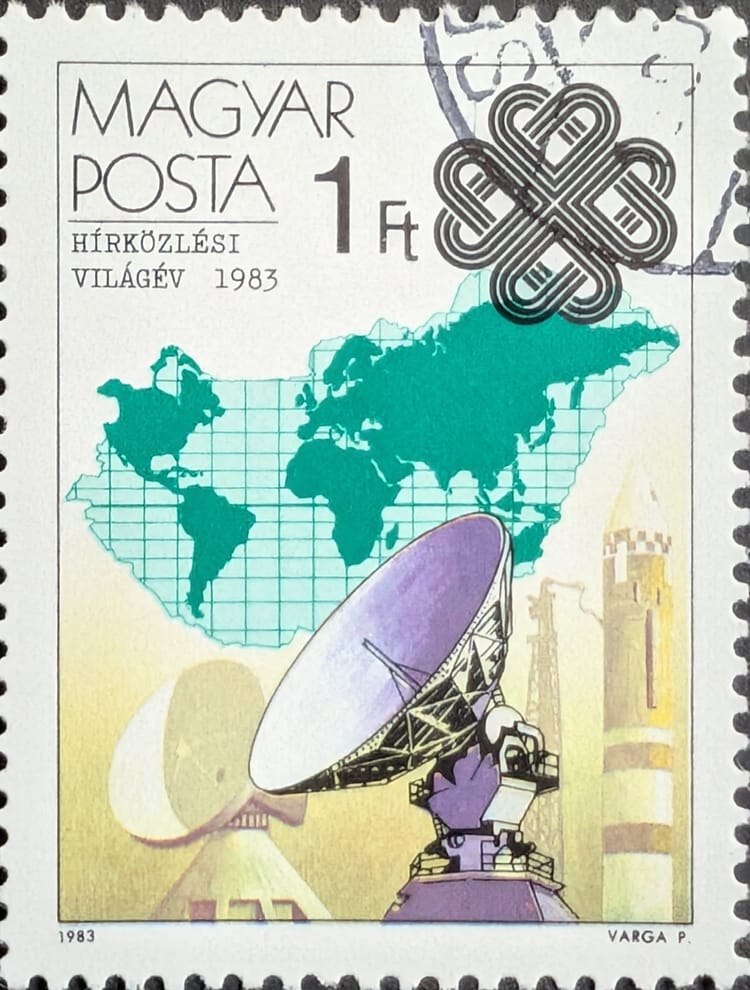How Bazaar!

A stamp within a stamp? Crazy Communists!
Reading over Jeff Foust’s descriptions of panel disagreements, it becomes obvious that various levels of delusion and disingenuousness exist throughout the global space industry.
I mean, it was obvious before, but those panels certainly highlight the problem even more.
Just Askin’
Concentrating on the panel about launch services (under “Cost versus Price”), in which a few European panelists were throwing around the types of questions usually asked by certain entertainers on Fox News. They know the answer, but they’re just asking questions, right? It doesn’t quite get to the “What is reusability and why shouldn’t I be able to throw my rocket away if I want to?” sort of level. But it seems to get close. For example, from an Arianespace executive on the panel:
“Is this level of price from SpaceX sustainable or not? I don’t know.”
Or:
“The price is crushed because of SpaceX’s approach to rideshare. Is cost going down the same way? I’m not sure.”
The thing is, that executive knows the answers to both questions. But he asks them anyway to sow seeds of doubt and imply nefarious purpose for SpaceX’s success. For the first question–how long has SpaceX been launching Falcon 9 rockets? (The answer is nine years.) How long has it been aggressively pricing its commercial Falcon 9 rocket launches? (Again, the answer is nine years.) While a business’ duration may not indicate its sustainability (see GM), nine years of low prices, growing operational launch tempo, growing market share, and plans to do even more **seem** to point to SpaceX not necessarily suffering from whatever perceived underpricing it is implementing.
The second question is even more inane. Again, the executive knows what’s going on. If SpaceX’s launch costs are higher than what customers are paying to launch with them, he understands very well–that’s what Arianespace has been doing with every launch. Back in 2014, Arianespace asked for government support to help keep the company’s launch prices somewhat competitive with SpaceX’s. He also knows that his company costs certainly aren’t goind down the same way. Of course, the company could find efficiencies, etc. to drive down costs, but that juicy government support incentivizes Arianespace not to do so.
Perhaps the executive knowing that fact is what’s driving his question–if Europe can’t compete with its excellent products and the help of the governments, why, SpaceX must be doing something even more diabolical.
And SpaceX is–it’s competing. This is causing Arianespace to look for alternative means to stay competitive without doing the work. For example, the only way Arianespace could compete and win the OneWeb contract was to use an old Russian rocket system instead of the rockets made in Europe. Russia’s Soyuz rocket should be cheap–its costs have been paid for during its decades of operation. And like Germany’s dependence on Russian natural gas, Arianespace’s dependence on Russian rockets has an obvious cost, which is now coming home to roost during these very interesting times. If there is a silver lining in this situation for Arianespace, it’s that most of its workers will remain employed–because Soyuz was manufactured by Russian workers.
But, the whole discussion of cost versus price is moot because the conversation revolves around a topic that’s typically a closely held secret in the space industry: price.
Industry Secrecy
The Arianespace executive’s reference to SpaceX’s Smallsat Rideshare Program is one of the few moments where an actual data point, SpaceX’s per kg pricing, can be referenced. In the executive’s case, it was to highlight that SpaceX’s pricing was too low. Note, however, he never compares SpaceX’s pricing to Arianespace’s. And that’s the problem–no one, aside from the company and its customers, KNOWS how much Arianespace charges for a launch, whether it’s per kg, per launch, by launch vehicle type, etc. I’d even bet that its customers aren’t sure that Arianespace will charge the same price for potential repeat service.
That’s a big problem and Arianespace isn’t the only one doing this. Quite a few space industry players seem to believe that keeping the price of a service or product secret somehow provides a layer of protection from competitors. But it doesn’t–it merely insulates them from reality (while the competition still eats their lunch). Other launch service providers also work on this kind of racket (even SpaceX kind of does it–but at least it lists a base price). Other sectors of the space industry are in on this type of nebulous price scheming as well.
For example–commercial Earth observation (EO) companies and their products are notorious for this type of non-window-shopping availability of their products. All those images of Ukraine right now come from commercial EO satellites; some are free thanks to companies like Maxar Technologies. Of course, the U.S. government pays Maxar plenty for imagery, probably of the same areas, so a little largess on the company’s part looks good. But I’d bet most customers and potential EO customers wouldn’t be able to tell you how much a simple image from most of these companies will cost. That puts businesses on a budget in a fix, as they can only guess at what an image will cost.
Pop Some Tags
I’m going to suggest a technology that might seem a little controversial to the space industry: the humble price tag. The nice thing about that technology? I don’t have to explain what it is– everyone understands it (even Communists!). Companies like Walmart don’t just rely on price tags–the company uses price banners and billboards throughout its stores. Amazon lets you compare the prices of one Chinese component with another–normally from the same factory but with a different nonsensical name (part of the charm, I suppose). Even airline prices can be found and compared.
This is why I don’t understand the overall attitude of secrecy of a space product’s or service’s cost. That secrecy is customer-hostile, treating customers as marks. It’s the way used car sales are conducted, but even that experience is better than the space industry’s way of conducting business because a customer generally has an idea of what a particular used vehicle should cost. Space industry customers don’t have even that.
For some reason, these space companies feel compelled to waste their potential customers’ time. Need a price? No problem, just “contact” them. They might come back with a price. Or they might discuss what you can afford. Maybe they don’t come back at all.
Why would anyone put their customers through that kind of twisted process, when there are so many obvious, pleasant, and established ways to part customers from their money? The thought process behind the secrecy needs to change, especially if this industry wants to attract customers, instead of making it harder for customers to buy their products or services.
Haggling with customers is only expected by tourists in bazaars, not for rockets and other space tech. When that Arianespace executive brought out the whole cost versus price trope, he knew there was no way for anyone to check his math because his company isn’t known for pricing transparency.
Is that conniving? I’m pretty sure it is.




Comments ()